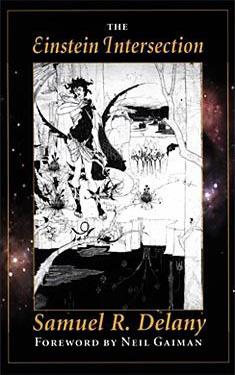Samuel R Delany
Completed 2/25/2021, Reviewed 2/25/2021
3 stars
Wow, I’m really not sure what I just read. Fortunately, I’ve read about it, so that helps. I generally really like Delany, so even with his weird, experimental, and new wave works, I try to stay open to the experience. This book was a little tougher for me than his others, even Dhalgren. It was a retelling of the Orpheus and Eurydice myth, and my understanding is that it was heavily influenced by the film “Black Orpheus”. Though I’ve not seen the film, I am familiar with the myth, so I had that as a basis. There was also a Minotaur-like scene and even a Jesus and Judas thread. Picking out the elements of the myths was fun, but the prose was pretty difficult. I would say this book falls in the category of the new wave of SF which was dominant at the time of its publication. This book won the Nebula Award for 1967 and was nominated for a Hugo in 1968.
This novel takes
place on a futuristic Earth. Lo Lobey is
a young goatherd who falls in love with Friza.
Friza dies suddenly and Lo Lobey wants her back. He wants to exact revenge on her killer, Kid
Death. He leaves his village and comes
across a herd of dragons being moved across the countryside. He joins the effort which is led by Spider
and Green-Eye. Along the way, he encounters
Kid Death multiple times, but doesn’t have the chance to slay him. Eventually, the herd makes its way to the big
city where he finally confronts his nemesis.
That’s probably
one of the shortest plot summaries I’ve ever written. Well, this is an extremely short book. My edition was 136 pages. Though the plot is short, the world-building
is large. As you progress through the
book, you find out more and more about what has happened to the Earth and the
society that now occupies it.
The character
development is also quite good. It
becomes clear that the people of this Earth are mutants, as Lo Lobey describes
his friends and acquaintances. They are
all a little different: some small, some
tall, some very hairy, some very smooth.
Lo Lobey himself kind of sounds like a pear-shaped Neanderthal. He’s also young, idealistic, and rash. He has a machete that he plays like a
flute. He doesn’t really want to learn
to hunt, but is made to hunt a very large bull-like creature with hands for
hooves. When Friza dies, all he wants to
do is kill the person responsible for her death and bring her back.
My problem with
the book is that as it goes on, it gets more and more esoteric. In the final third of the book, Lo Lobey has interactions
and confrontations with multiple people who try to explain to him the
significance of myth and relate it to his quest. So it gets meta and leaves him, and us,
hanging. Also, Delany includes quotes at
the beginnings of each chapter, including excerpts from his own journal he kept
while writing the book and traveling across Europe. In one of his quotes, he basically says that
it’s time to write the ending, and endings should be inconclusive. Well, this one was. There’s some resolution, but not totally. It felt more like Delany just got tired of
writing and stopped.
I give this book three
stars out of five. The first third is
fairly understandable, the second third starts to get weird, then last third
gets way weird. But I give Delany props
for placing a mythic journey in a very strange setting, and then mixing other
myths along with it. The title, by the
way, is pretty misleading. Delany actually
wanted to entitle it “A Fabulous, Formless Darkness”, but the publisher wanted
a pulpier title instead. The original
title doesn’t tell you much about the contents, but at least it’s not a
misdirection. Einstein only comes up in
a late discussion between Spider and Lo Lobey. Should you read this book? I’d say give it a pass unless you are a big
Delany fan, into new wave SF of the ‘60s, or are reading through all the Nebula
winners.

No comments:
Post a Comment